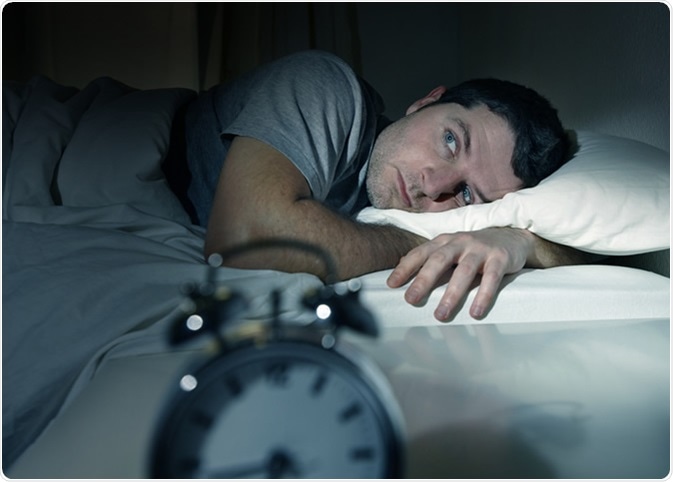
The DEC2 Gene and Sleep
Sleep is essential for physical and mental health. Approximately 8 hours of sleep is adequate to feel good and to function optimally for most people. Inadequate sleep increases the chances of ill-health and affects mental vigilance. However, there are some people who can survive on less than 6 hours of sleep without any obvious adverse health effects. This has been linked to the presence of certain gene mutations which help them remain awake and operate normally with a few hours of sleep. The pattern was first observed in a mother and daughter duo, who shared a rare genetic mutation, by virtue of which they required six hours or less of sleep per day. This observation led researchers to delve deeper.

Image Credit: Marcos Mesa Sam Wordley / Shutterstock
At the University of California at San Francisco, professor Ying-Hui Fu discovered that the DEC2 gene is the gene responsible for this pattern of low sleep requirement in this small group of people.
What is the DEC2 gene?
DEC2 is a transcriptional repressor for the expression of orexin. Orexin is a peptide that modulates arousal and wakefulness. DEC2 inhibits transcription of the orexin genes into messenger RNA, which ultimately results in decreased expression or production of orexin. DEC2 thus regulates the circadian clock in humans. DEC2 oscillates on a circadian schedule: increased levels are found during the day and the levels are decreased at night.
What are the consequences of mutation in the DEC2 gene?
Preclinical studies in mice have shown that a mutant form of DEC2 results in increased orexin production and a decrease in the total duration of daily sleep. A missense mutation (proline-to-arginine) in DEC2 leads to this feature, also known as the familial natural short sleep behavioral trait.
As orexin has been associated with sleep modulation, orexin antagonists are now being used for the clinical treatment of insomnia. Suvorexant is currently the only approved orexin antagonist used to treat insomnia. The efficacy of suvorexant has been established in various trials. Suvorexant is a safe and well-tolerated drug; however, its use may cause drowsiness the next day.
Emerging research in this field has led to various studies exploring this novel mechanism in disorders such as Alzheimer's disease and depression. The DEC2 mutation is very rare and currently there are no genetic tests available for the mutated DEC2 gene. The studies on DEC2 gene look promising; however, there are many other gene mutations that act via different pathways to reduce the total sleep time. Researchers around the world are studying these genes with the goal of better understanding the pathophysiology of sleep and its impact on our health.
Sources
- Hirano, A., Hsu, P. K., Zhang, L., Xing, L., McMahon, T., Yamazaki, M., … Fu, Y. H. (2018). DEC2 modulates orexin expression and regulates sleep. Proceedings of the National Academy of Sciences of the United States of America, 115(13), 3434–3439. doi:10.1073/pnas.1801693115
- Herring WJ, et al. (2019). Orexin receptor antagonists for the treatment of insomnia and potential treatment of other neuropsychiatric indications. J Sleep Res.,28(2):e12782. doi: 10.1111/jsr.12782.
Further Reading
Last Updated: Jul 21, 2019
































No hay comentarios:
Publicar un comentario